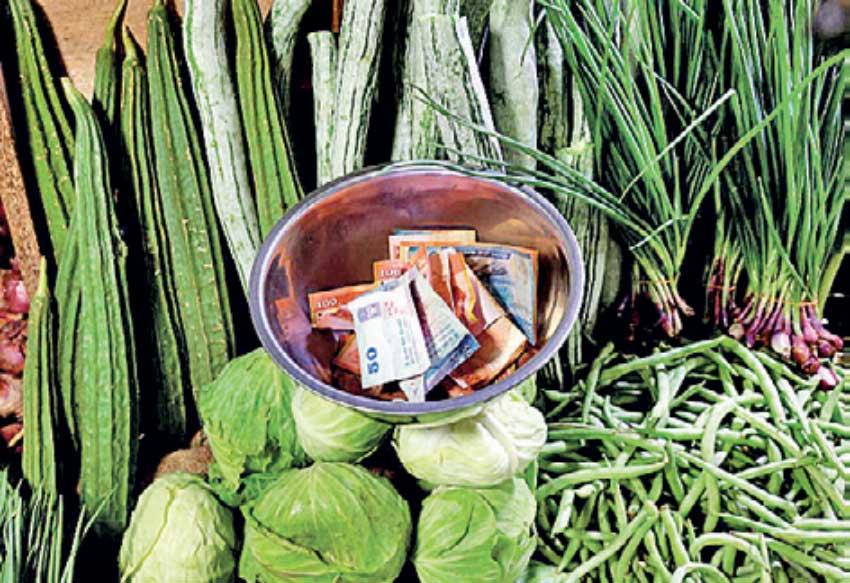15 Dec 2022 - {{hitsCtrl.values.hits}}

As both headline and core inflation decelerated in October and November, the Central Bank expects the contribution from food, energy and transport to consumer prices to ease further in the months ahead, supporting the envisaged disinflation path.
Sri Lanka’s official consumer prices started easing since October, after peaking at a little under 70 percent in September, although the true cost of living has gone through the roof, hitting hardest the consumption and lifestyles of nearly all households.
A recent study by the World Food Programme conducted through the end of October showed that people have been forced to eat less, prompting them to sell whatever the assets to maintain their sustenance, as the worst economic crisis, which fired runaway inflation, has taken a heavy toll on every aspect of their lives.
Sri Lanka’s consumer prices measured by the Colombo Consumer Price Index came in at 61.0 percent in November. The monthly prices, which offer some better visibility over the direction of the near-term price pressures, fell by 0.5 percent over the previous month, faster than the 0.4 percent in October.
The food and energy prices have somewhat retreated from their September peaks, the Central Bank data showed. Despite that, Sri Lankans were still paying 73.7 percent higher prices in November for their food over what they paid a year ago, down from 85.6 percent in October.
However, the monthly prices declined 1.5 percent in the month, after falling 2.0 percent in October, reflecting that the recent rise in food prices has moderated.
“Going forward, we expect these contributions to make further impact on decelerating inflation,” said Central Bank Director Economic Research Dr. P.K.G. Harischandra, recently.
While the energy prices are also appearing to be beginning to take some heat away from the consumer prices, economists and analysts are worried the services inflation would stay relatively stickier into the future.
Non-food inflation came only slightly down to 54.5 percent in November, from 56.3 percent in October. The monthly prices remained unchanged after rising 0.7 percent in October.
The recent deflationary pressures on global energy markets and other commodities, due to concerns on slowing global demand, are expected to bode favourably on the future course of inflation to come down.
Many central banks are now seeing their relentless rate rise campaigns to tame inflation beginning to yield results, as the undue price pressures appear to have capitulated, although they still remain at multi-year highs.
05 Nov 2024 27 minute ago
05 Nov 2024 2 hours ago
05 Nov 2024 2 hours ago
05 Nov 2024 3 hours ago
05 Nov 2024 4 hours ago